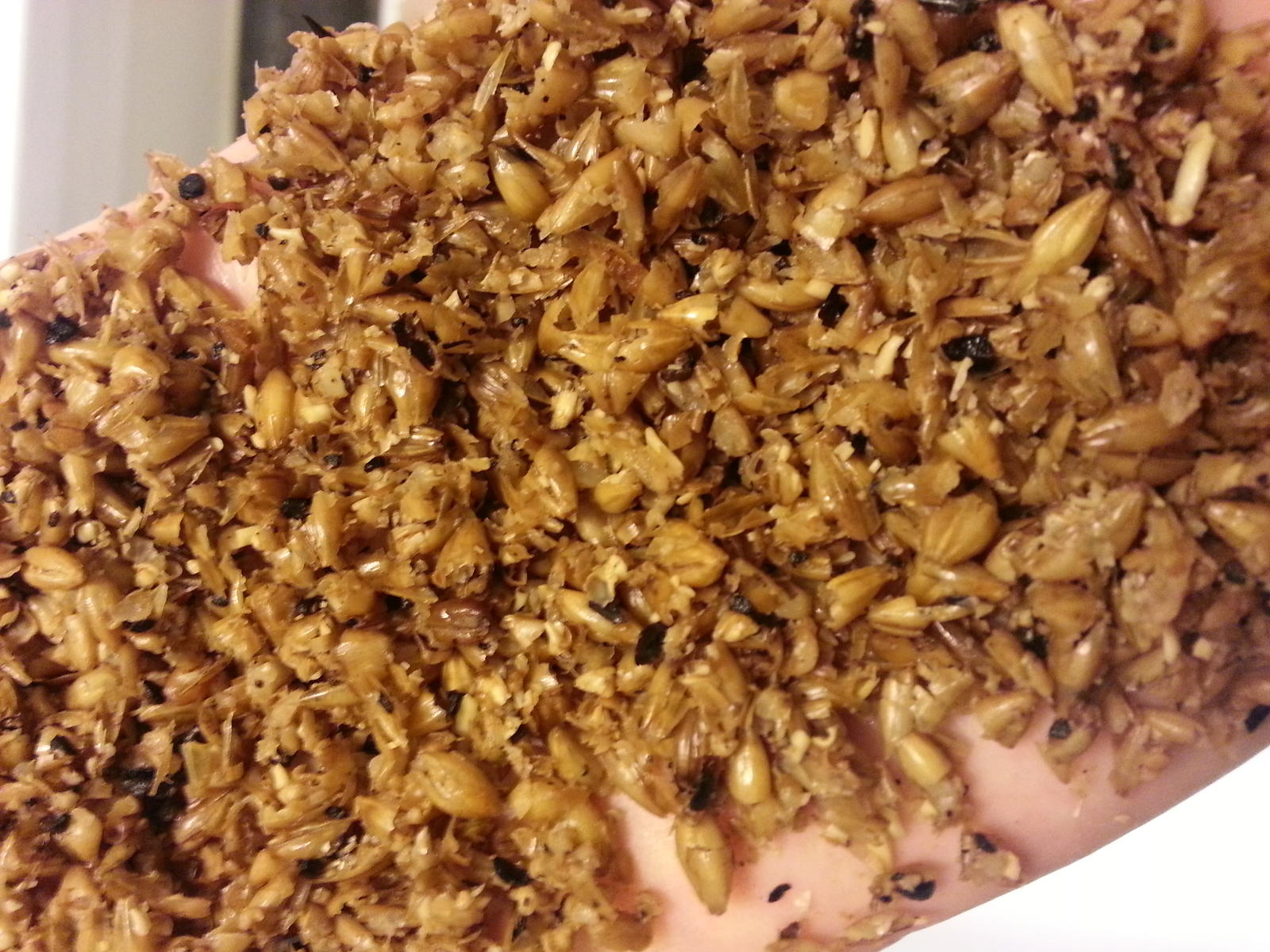O
oxbow1
Guest
Hello everyone, this is my first post so go easy on me! I think I did my due diligence searching the forums for a solution without finding it, so here goes.
I've been brewing extract and partial mash brews for a while now, and have recently started AG low-gravity ales (as easily managed by the equipment I have). I generally get efficiencies in the 50-66% range, which is disappointing. Today I brewed an English mild which resulted in brewhouse efficiency of 56%. Perhaps someone can see the step in my process / recipe that is causing such poor results?
Recipe:
5.5# Maris Otter
0.5# Crystal 60L
0.25# Chocolate
1oz Fuggles 5%AA (45 minute boil)
Very soft spring water (alkalinity<25, pH 6.4)
Mash was as follows, in a mesh bag in a pre-heated 5-gallon cylindrical cooler:
-- 7.8qt strike water at 171.6 degrees, resulting in initial mash temperature of 155.6 degrees. Stirred very well, covered, let rest for 70 minutes, stirring occasionally. Mash temp at the end of the rest had dropped to 147 degrees.
-- added 2qt boiling water, intended to be a mashout but only brought the overall temp to 161. Still, this doesn't seem like a huge issue for conversion efficiency. Stirred well, let rest 10 minutes.
-- drained entirely into kettle.
-- Added sparge water, 8qt at 170 degrees. Stirred very well, let rest 15 minutes. Stirred again.
-- drained into kettle, collecting ~3.75 gallons of wort. Did not squeeze the bag, but let it drain pretty thoroughly.
Normal 60 minute boil with hop addition, then chilled, put into fermenter with enough water to get to 5.5 gallons. OG @ 69 degrees = 1.024 (if I'm being generous - probably closer to 1.022).
It seems the usual culprit is grain crush, but from looking at images posted on these forums and discussing this with the folks at the LHBS the crush should be alright. (Regardless I'll crush finer next time, just to see what happens).
Could the water softness be the problem? I have not checked the mash pH, but since the efficiency has been low for a variety of ales (light and dark), it seems like there is some other consistent issue.
Any help is greatly appreciated!
I've been brewing extract and partial mash brews for a while now, and have recently started AG low-gravity ales (as easily managed by the equipment I have). I generally get efficiencies in the 50-66% range, which is disappointing. Today I brewed an English mild which resulted in brewhouse efficiency of 56%. Perhaps someone can see the step in my process / recipe that is causing such poor results?
Recipe:
5.5# Maris Otter
0.5# Crystal 60L
0.25# Chocolate
1oz Fuggles 5%AA (45 minute boil)
Very soft spring water (alkalinity<25, pH 6.4)
Mash was as follows, in a mesh bag in a pre-heated 5-gallon cylindrical cooler:
-- 7.8qt strike water at 171.6 degrees, resulting in initial mash temperature of 155.6 degrees. Stirred very well, covered, let rest for 70 minutes, stirring occasionally. Mash temp at the end of the rest had dropped to 147 degrees.
-- added 2qt boiling water, intended to be a mashout but only brought the overall temp to 161. Still, this doesn't seem like a huge issue for conversion efficiency. Stirred well, let rest 10 minutes.
-- drained entirely into kettle.
-- Added sparge water, 8qt at 170 degrees. Stirred very well, let rest 15 minutes. Stirred again.
-- drained into kettle, collecting ~3.75 gallons of wort. Did not squeeze the bag, but let it drain pretty thoroughly.
Normal 60 minute boil with hop addition, then chilled, put into fermenter with enough water to get to 5.5 gallons. OG @ 69 degrees = 1.024 (if I'm being generous - probably closer to 1.022).
It seems the usual culprit is grain crush, but from looking at images posted on these forums and discussing this with the folks at the LHBS the crush should be alright. (Regardless I'll crush finer next time, just to see what happens).
Could the water softness be the problem? I have not checked the mash pH, but since the efficiency has been low for a variety of ales (light and dark), it seems like there is some other consistent issue.
Any help is greatly appreciated!















































![Craft A Brew - Safale S-04 Dry Yeast - Fermentis - English Ale Dry Yeast - For English and American Ales and Hard Apple Ciders - Ingredients for Home Brewing - Beer Making Supplies - [1 Pack]](https://m.media-amazon.com/images/I/41fVGNh6JfL._SL500_.jpg)











